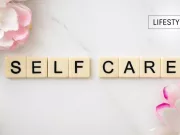
How to Stop Anxiety | 10 Ways to Stop and Calm Anxiety Quickly
Welcome to Lifestyle Femina | How to Stop Anxiety
When anxiety comes, my thoughts might seem like a runaway train hurtling down a track with the destination of panic in its sights. Perhaps they’re just like a hamster on a wheel, going round and round the same fictitious issue until I’m worn out and haven’t advanced farther than I was before. When I attempt to describe how nervousness feels in my thoughts, much alone my trembling hands, racing heart, and general clamminess that sometimes take hours to pass, I find myself stacking analogies.
It is never simple to live with anxiety. Like you, millions upon millions of individuals battle anxiety daily and hunt for ways to find relief. It takes time to master anxiety regulation; it is not something that can be accomplished in a single day. But you may include strategies to manage your anxiety in your daily life.
Try the following stop anxiety reduction techniques if you are experiencing anxiety right now or if you experience anxiety frequently enough that you need relief right away.
There are various strategies to handle anxiety symptoms in the present, whether you’re worried about something or have an anxiety condition.
Let’s begin!
Key Takeaways:
- Simple lifestyle adjustments may eventually help reduce anxiety.
- The proper methods and equipment might also provide immediate relief.
- We may change our connection to anxiety via meditation, enabling us to accept our feelings as they arise and pass.
10 Ways to Stop and Calm Anxiety Quickly
#1. Maintain a straight posture
Stand up, bring your shoulders back, plant your feet evenly and far apart, and expand your chest for immediate relief from worry. Then take a big breath. This position, when accompanied by deep breathing, helps your body recall that it is not in danger and that it is in command (not helpless). If you are unable to stand (for example, if you are in your car), simply lift your shoulders back and expand your chest. The most essential thing is to relax and breathe deeply.
Also Read: The Best Foods Good for Skin
#2. Try the 5-4-3-2-1 coping strategy
When you’re dealing with anxiety, the 5-4-3-2-1 coping approach may help quiet your mind.
This is how it works:
Five. Take a look around the room and list five items you notice. These can be items, wall spots, or a bird soaring outside. The trick is to keep track of those five items.
Fourth, list fourthings that you can touch. This may be the earth beneath your feet, the chair you’re sitting in, or the hair you’re running your fingers over.
Three. Listen quietly, then identify three things you hear. These might be exterior sounds such as a fan in the room or interior sounds such as your breathing.
Two. Take note of two items you can smell. Perhaps it’s the perfume you’re wearing or the pencil in your hand.
One, take note of something you can taste in your mouth. Perhaps it’s the lipgloss you’re wearing.
This approach works best when combined with calm, deep breathing.
Also Read: Unrequited Love: Proper Ways To Deal With The Feeling
#3. Control Your Breathing
Poor breathing practices are frequently associated with severe anxiety symptoms. Many anxious men and women have poor breathing patterns, which lead to anxiety and many of the most distressing symptoms.
Controlling your breathing is a solution – and it’s not what you think. Even if you believe you can’t take a deep breath, you should slow down and limit your breathing rather than try to take deeper breaths. Use the following technique to take more regulated, slower breaths:
Breathe in deeply and softly through your nose for 5 to 7 seconds.
Hold for three or four seconds.
Breathe out slowly and softly through pursed lips, as if whistling, for 7 to 9 seconds.
Repeat this exercise ten to twenty times. This breathing technique will keep you from hyperventilating (a typical problem among anxious people) and will help you reestablish the Co2 balance in your body, which causes many of the worst anxiety symptoms.
Also Read: Weight Watchers vs Keto: How to Choose the Best Diet Plan
#4. Speak with a Friendly Person
Another really successful strategy is to speak with someone you like and trust, preferably over the phone. Don’t be afraid to express your worry; tell them you’re worried and explain why.
Talking to good, sympathetic individuals takes your mind off your symptoms, and the supporting character of friends and family provides you with an extra boost of confidence. If you’re having a panic attack, it also makes you feel more sure that if something goes wrong, you’ll have someone to look after you.
#5. Meditate
According to research, practicing mindful meditation can help reduce anxiety and other psychological pressures. We are everyone capable of practicing mindfulness, but it is simpler to do after we have made it a habit. If you’re new to meditation, you might want to attempt guided meditation with the help of audiotapes or a phone app. It is not difficult or unusual, but just learning to focus on the present moment.
Simply sit up straight and place your feet on the floor. Close your eyes and say a mantra aloud or to yourself. You may use any uplifting remark or sound as your mantra. Try to match the chant to your breathing. Don’t become irritated if your attention wanders to distracting ideas. Just focused and keep going. If you practice for a few minutes every day, it will become a simple and accessible technique in your anti-anxiety arsenal.
Also Read: Is The Sauna Or Steam Room Better For Weight Loss
#6. Music
According to 2015 research, listening to calming music helps persons who are experiencing mild or severe anxiety. Music has been shown to reduce blood pressure and heart rate. So that you can simply listen to your favorite tunes or even natural noises, keep music close by. Make playlists so you can listen to them and feel better quickly.
Additionally, singing produces endorphins and oxytocin, which reduces anxiety, according to research. Evidently, being good is not even necessary. Simply sing.
Also Read: Best Acupressure Mat for Daily Self-Care
#7. Creativity
It’s good to make use of your imagination if you have one. The arts provide hope for all of your worrying thoughts. If you’re creative, try sketching or painting how you’re feeling for a while. Always have a photo of the beach or your favorite destination handy so you may take a mental break whenever you need it. Anxiety and despair might benefit from writing about one’s feelings.
Keeping a notebook of thanks is a great way to combat negative thinking and reflect on the blessings in your life. Keeping a gratitude notebook before night might help you wind down. It might improve the quality of your night’s rest.
Also Read: How to Avoid Job Burnout in 2023
#8. Laughter
Though anxiety is certainly nothing to giggle about, smiling has some unexpected advantages. Similar to deep breathing, laughing boosts oxygen levels and eases tension in the body’s muscles. The act of laughing just makes us feel good, makes us more lighthearted, and changes our perspective. If you want to laugh, contact your funny friend or watch a comedy. You will be happy you did.
#9.Practice with Aerobic Workout
Adrenaline floods your body at anxious times. Putting that adrenaline into aerobic activity can be a terrific strategy to reduce anxiety. Exercise offers various benefits for managing your anxiety symptoms:
- Exercise burns away the stress chemicals that cause anxiety symptoms.
- Exercise exhausts your muscles, releasing surplus energy and stress.
- Exercise causes endorphins to be released in the brain, which might boost your mood.
- Exercise has been related to better breathing.
- Exercise is a beneficial diversion.
Aerobic movement, such as light jogging or even quick walking, can be incredibly beneficial in lowering the severity of your anxiety symptoms as well as the anxiety itself.
Also Read: Liteboxer Review – At-Home Boxing Workout
#10. Take care of yourself
Sometimes all you need to do to feel better is take action. That can entail receiving a relaxing facial or a massage. Wrap your neck and shoulders with a warmed heat wrap for fast relaxation. Relax your facial and neck muscles while closing your eyes. Disconnecting from the outside world might be helpful at times. Turn off your phone, computer, and television, even if you only have five minutes, and observe the world without you for a bit. Time in silence is calming.
Like this? Now Read:















[…] How to Stop Anxiety | 10 Ways to Stop and Calm Anxiety Quickly […]
[…] How to Stop Anxiety | 10 Ways to Stop and Calm Anxiety Quickly […]
[…] Also Read: How to Stop Anxiety | 10 Ways to Stop and Calm Anxiety Quickly […]
[…] Also Read: How to Stop Anxiety | 10 Ways to Stop and Calm Anxiety Quickly […]
[…] How to Stop Anxiety | 10 Ways to Stop and Calm Anxiety Quickly […]
[…] Also Read: How to Stop Anxiety | 10 Ways to Stop and Calm Anxiety Quickly […]
[…] Also Read: How to Stop Anxiety | 10 Ways to Stop and Calm Anxiety Quickly […]